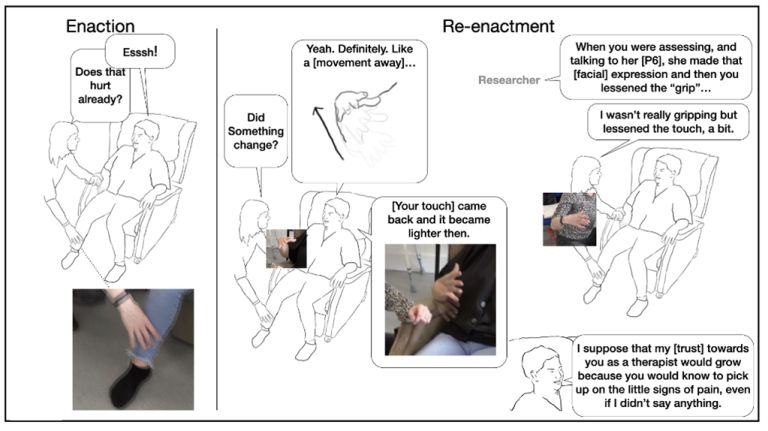Embodied Intelligence: From Sensing to Collaboration

30 October 2023
Current robots are too specialised, too impoverished in their sensory capabilities, too uncooperative and too unsafe to be productive at scale, with and around humans. To enhance productivity in key sectors like social care, manufacturing, logistics, service, inspection and agriculture, the next generation of robots must possess unparalleled abilities in sensing, interpreting, acting, navigating, co-ordinating and collaborating.
Led by the University of Oxford, in collaboration with UCL and a network of academic, industrial and deployment partners, the EPSRC-funded Programme Grant ‘Embodied Intelligence: From Sensing to Collaboration’ aims to create autonomous systems that enhance human capability and potential.
As part of this Programme Grant, the research team at UCLIC, led by Professor Nadia Berthouze, is seeking to develop an in-depth understanding of the affective qualities of functional touch. For example, we are exploring how touch succeeds in conveying experiences of trust and confidence to the person being touched during an occupational therapy session (see figure below 'Occupational therapist’s spontaneous touch modulation during seating assessment increases feeling of trust in simulating patient', courtesy of Dr Minna O. Nygren).

In collaboration with Professor Steve Fleming (UCL Experimental Psychology) and Professor Perla Maiolino (University of Oxford), we are also exploring how confidence and trust are implicitly conveyed in the kinematics and force profiles of human decision-makers. The insights gathered will be used to inform the design of social robots and training technologies in the context of social care.
Additional resources
Visit the project's website: https://embodiedintelligence.web.ox.ac.uk/
 Close
Close

